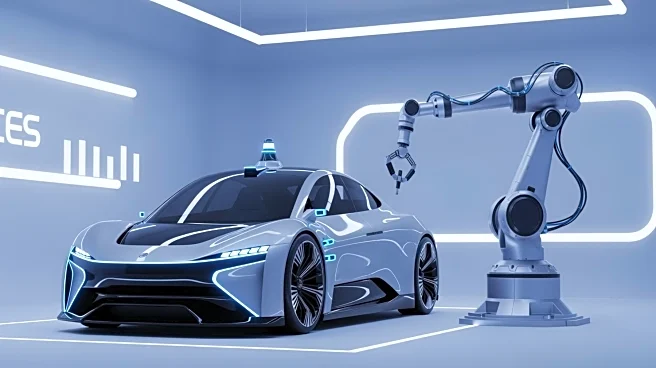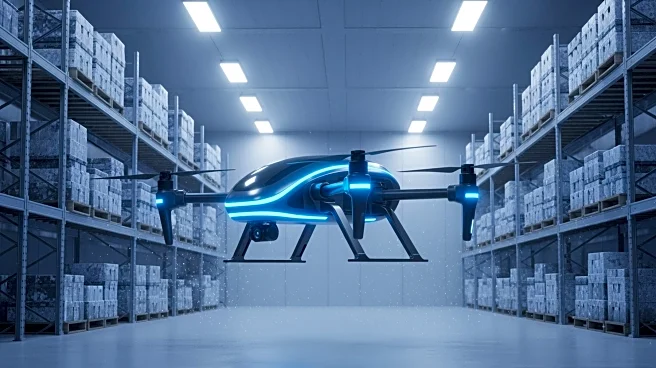What's Happening?
Tesla is reportedly shifting its strategy away from introducing new car models, focusing instead on autonomous vehicles and humanoid robots. The company has not launched a new mass-market model since the Model Y in 2020, with the Cybertruck facing sales
challenges. Tesla's approach involves treating its vehicles like smartphones, with incremental updates rather than major redesigns. This strategy poses risks for investors, as the lack of new models could affect customer loyalty and market share. Tesla's focus on autonomous technology and robotics reflects CEO Elon Musk's vision of a future where human labor is minimized.
Why It's Important?
Tesla's strategic shift has significant implications for the automotive industry and its investors. By prioritizing autonomous technology and robotics, Tesla is betting on future trends that could redefine transportation and labor. This move could impact Tesla's market position, as traditional automakers continue to introduce new models to attract consumers. The focus on technology over new models may challenge Tesla's ability to maintain growth and customer loyalty. Investors and industry analysts are closely watching Tesla's approach, as it could influence broader industry trends and competitive dynamics.
What's Next?
Tesla's strategy will likely lead to increased investment in autonomous technology and robotics, with potential developments in these areas shaping the company's future. The lack of new models may prompt Tesla to explore alternative ways to engage consumers and maintain market share. Competitors may respond by accelerating their own technological advancements to counter Tesla's approach. The automotive industry will continue to evolve as companies balance innovation with consumer demand for new models. Tesla's focus on technology could drive further advancements in autonomous vehicles and robotics.
Beyond the Headlines
Tesla's emphasis on autonomous technology and robotics raises ethical and societal questions about the future of labor and transportation. The potential reduction in human labor due to robotics could impact employment and economic structures. Additionally, the development of autonomous vehicles may lead to regulatory challenges and safety concerns. Tesla's strategy reflects broader trends in technology and innovation, influencing how industries adapt to changing consumer preferences and technological capabilities. The company's approach may also affect public perception of electric vehicles and their role in sustainable transportation.
















